Ahmed Hallawa
LiteVSR: Efficient Visual Speech Recognition by Learning from Speech Representations of Unlabeled Data
Dec 15, 2023



Abstract:This paper proposes a novel, resource-efficient approach to Visual Speech Recognition (VSR) leveraging speech representations produced by any trained Automatic Speech Recognition (ASR) model. Moving away from the resource-intensive trends prevalent in recent literature, our method distills knowledge from a trained Conformer-based ASR model, achieving competitive performance on standard VSR benchmarks with significantly less resource utilization. Using unlabeled audio-visual data only, our baseline model achieves a word error rate (WER) of 47.4% and 54.7% on the LRS2 and LRS3 test benchmarks, respectively. After fine-tuning the model with limited labeled data, the word error rate reduces to 35% (LRS2) and 45.7% (LRS3). Our model can be trained on a single consumer-grade GPU within a few days and is capable of performing real-time end-to-end VSR on dated hardware, suggesting a path towards more accessible and resource-efficient VSR methodologies.
A Framework for Knowledge Integrated Evolutionary Algorithms
Mar 31, 2021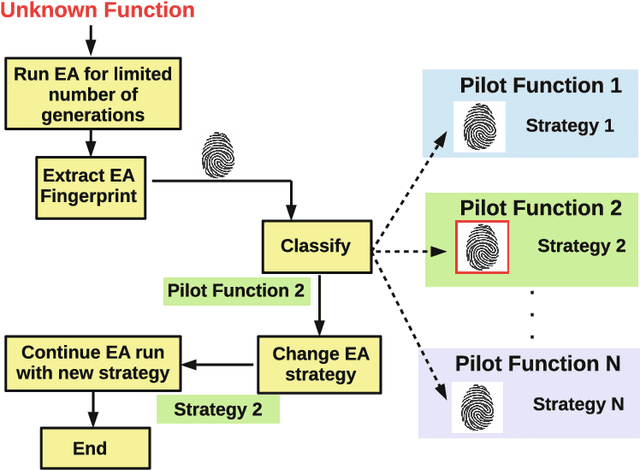
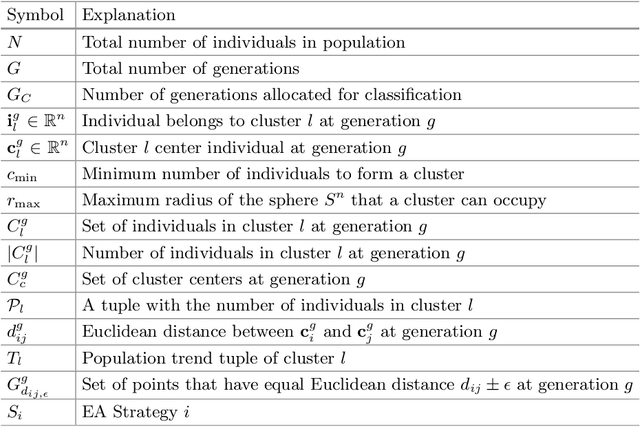
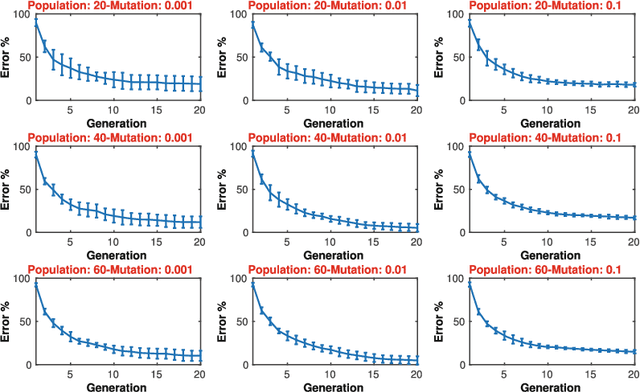
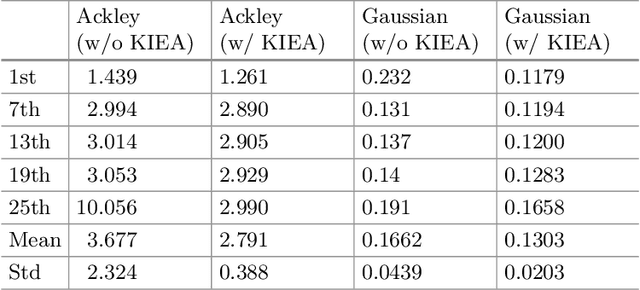
Abstract:One of the main reasons for the success of Evolutionary Algorithms (EAs) is their general-purposeness, i.e., the fact that they can be applied straightforwardly to a broad range of optimization problems, without any specific prior knowledge. On the other hand, it has been shown that incorporating a priori knowledge, such as expert knowledge or empirical findings, can significantly improve the performance of an EA. However, integrating knowledge in EAs poses numerous challenges. It is often the case that the features of the search space are unknown, hence any knowledge associated with the search space properties can be hardly used. In addition, a priori knowledge is typically problem-specific and hard to generalize. In this paper, we propose a framework, called Knowledge Integrated Evolutionary Algorithm (KIEA), which facilitates the integration of existing knowledge into EAs. Notably, the KIEA framework is EA-agnostic (i.e., it works with any evolutionary algorithm), problem-independent (i.e., it is not dedicated to a specific type of problems), expandable (i.e., its knowledge base can grow over time). Furthermore, the framework integrates knowledge while the EA is running, thus optimizing the use of the needed computational power. In the preliminary experiments shown here, we observe that the KIEA framework produces in the worst case an 80% improvement on the converge time, w.r.t. the corresponding "knowledge-free" EA counterpart.
Challenging the Security of Logic Locking Schemes in the Era of Deep Learning: A Neuroevolutionary Approach
Nov 30, 2020

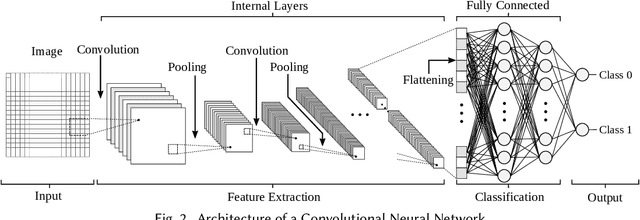
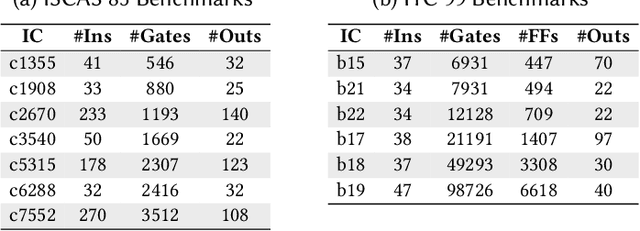
Abstract:Logic locking is a prominent technique to protect the integrity of hardware designs throughout the integrated circuit design and fabrication flow. However, in recent years, the security of locking schemes has been thoroughly challenged by the introduction of various deobfuscation attacks. As in most research branches, deep learning is being introduced in the domain of logic locking as well. Therefore, in this paper we present SnapShot: a novel attack on logic locking that is the first of its kind to utilize artificial neural networks to directly predict a key bit value from a locked synthesized gate-level netlist without using a golden reference. Hereby, the attack uses a simpler yet more flexible learning model compared to existing work. Two different approaches are evaluated. The first approach is based on a simple feedforward fully connected neural network. The second approach utilizes genetic algorithms to evolve more complex convolutional neural network architectures specialized for the given task. The attack flow offers a generic and customizable framework for attacking locking schemes using machine learning techniques. We perform an extensive evaluation of SnapShot for two realistic attack scenarios, comprising both reference benchmark circuits as well as silicon-proven RISC-V core modules. The evaluation results show that SnapShot achieves an average key prediction accuracy of 82.60% for the selected attack scenario, with a significant performance increase of 10.49 percentage points compared to the state of the art. Moreover, SnapShot outperforms the existing technique on all evaluated benchmarks. The results indicate that the security foundation of common logic locking schemes is build on questionable assumptions. The conclusions of the evaluation offer insights into the challenges of designing future logic locking schemes that are resilient to machine learning attacks.
EVO-RL: Evolutionary-Driven Reinforcement Learning
Jul 10, 2020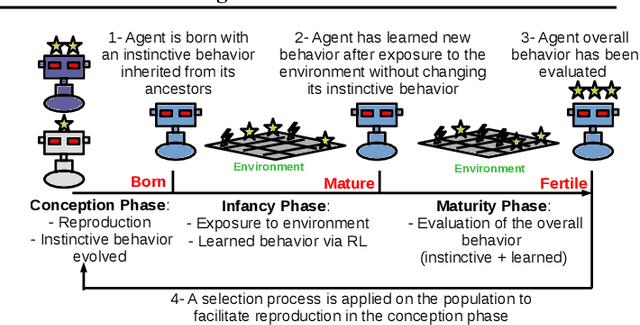
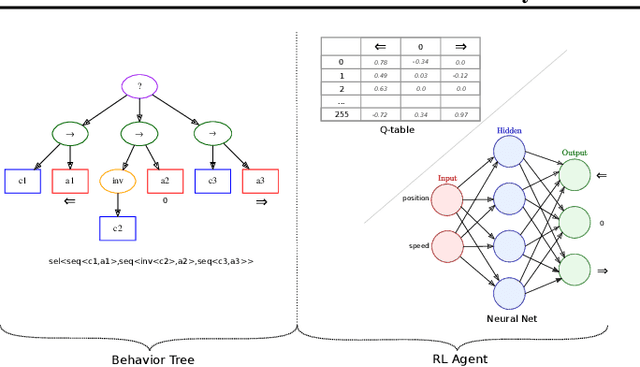
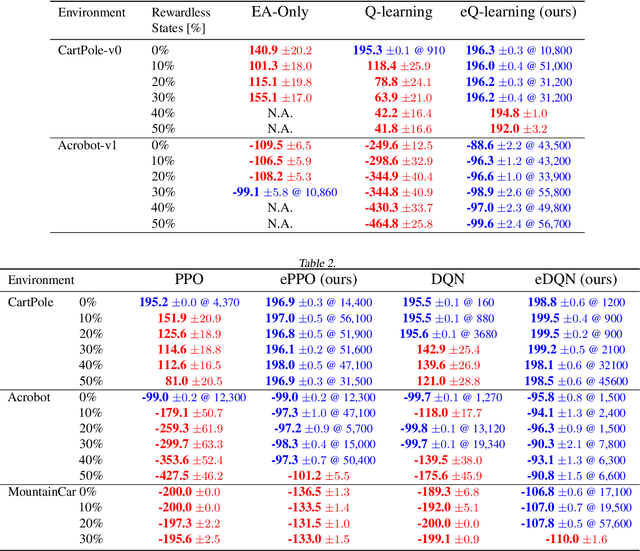

Abstract:In this work, we propose a novel approach for reinforcement learning driven by evolutionary computation. Our algorithm, dubbed as Evolutionary-Driven Reinforcement Learning (evo-RL), embeds the reinforcement learning algorithm in an evolutionary cycle, where we distinctly differentiate between purely evolvable (instinctive) behaviour versus purely learnable behaviour. Furthermore, we propose that this distinction is decided by the evolutionary process, thus allowing evo-RL to be adaptive to different environments. In addition, evo-RL facilitates learning on environments with rewardless states, which makes it more suited for real-world problems with incomplete information. To show that evo-RL leads to state-of-the-art performance, we present the performance of different state-of-the-art reinforcement learning algorithms when operating within evo-RL and compare it with the case when these same algorithms are executed independently. Results show that reinforcement learning algorithms embedded within our evo-RL approach significantly outperform the stand-alone versions of the same RL algorithms on OpenAI Gym control problems with rewardless states constrained by the same computational budget.
 Add to Chrome
Add to Chrome Add to Firefox
Add to Firefox Add to Edge
Add to Edge